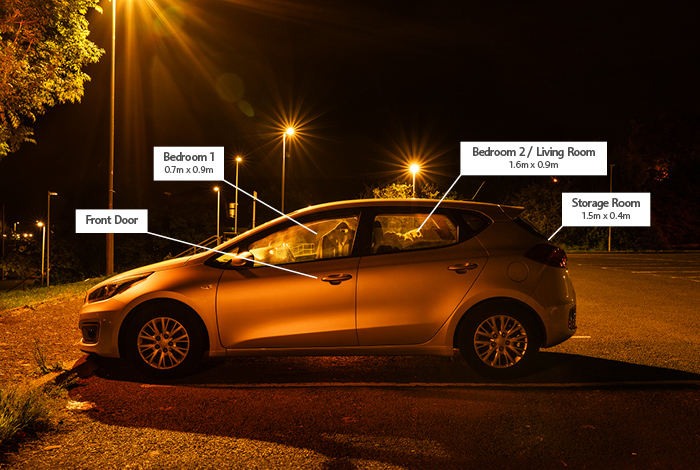

Recent all Ireland Poll details the pervasive yet underrecognized issue of hidden homelessness. It reveals the complexity and diversity of hidden homelessness, which often includes individuals who, despite lacking a permanent address, do not appear in conventional homeless statistics.

This research shows us that there is significant underreporting of the true size and scale of the issue of homelessness in Northern Ireland. Official statistics tell only part of the story with 55,500 people – including 4,500 children –classified as homeless. Yet this figure doesn’t account for people unknown to the authorities – the ‘hidden’ homeless. We believe that there are as many as an additional 25,000 people in Northern Ireland who are homeless but are currently not accessing any support. They are unknown and invisible to the system that should be helping them.
This new data is showing that the majority of people who are ‘hidden’ homeless are experiencing it for at least 6 months. We know that long periods in temporary accommodation – whether a B&B, homeless hostel or sleeping in your car – will have a significant long term impact on both mental and physical wellbeing. The impact on the individual and the health service will be felt for many years to come.
“There were no houses available my niece had 2 small children had to move in with my sister in law. She got a private rental through a friend but lived with my sister-in-law for nearly a year!”
The data also further demonstrates the impact of soaring private rents in NI in pushing more and more people into homelessness, and young people are most at risk.
“The rental market and social housing desperately needs reform. I am terrified that my landlord will sell my house and I won’t get another for my children to live in. It keeps me awake at night.”
We are bringing together the key decision makers within housing policy and homelessness services in NI on 10th June to ask ourselves why. Why are there are thousands of people outside the system experiencing homelessness who aren’t accessing support? Why do they feel they cannot ask for help? What can we do to reach them before it is too late?
Our government must move away from focusing on emergency, temporary solutions. We need to focus on prevention, and we need housing to be a key priority in our new PFG. The impact of this crisis across all areas of government will only deepen without a strong housing supply strategy being implemented urgently.


